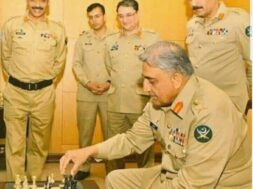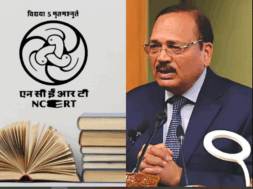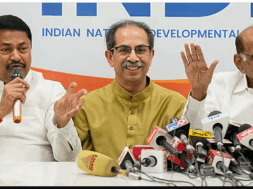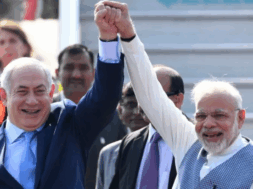
Roving Periscope: Pakistan Army has no fuel for tanks; suspends exercises!
Virendra Pandit
New Delhi: Two years after then Pakistan Army chief General Qamar Javed Bajwa admitted that Islamabad cannot go to war against India as its tanks were not in working condition, the bankrupt South Asian country’s troops have also run out of fuel and suspended all military drills and war exercises until the year-end.
General Bajwa had conceded to some senior journalists in 2021 that the army’s tanks and vehicles are rusty and that his troops do not have sufficient operational logistics to fight a war.
The media reported on Thursday that now the Pakistan Army has suspended all military drills and war exercises until this year’s end—not because of a sudden change of heart, pangs of conscience, a ceasefire agreement with India, or peace and tranquility on the borders—but because of a lack of fuel.
Despite Islamabad raising its defense budget this year by about 12 percent, political and economic turmoil in the South Asian country has squeezed even the spendthrift Pakistan Army whose expenses are never audited.
The media reported that the Director-General of Military Training of the Pakistan Army recently issued a letter to all the field formations and headquarters to suspend their war games until December 2023, citing the lack of “reserve fuel” and lubricants.”
In military parlance, reserve fuel is different from war reserves. While war reserves are meant for weapons and fuel needed to fight a war for certain days or periods, reserved stores are generally meant for in-house military exercises and war drills.
Despite its recent exit from the global terror funding watchdog, the Financial Action Task Force (FATF)’s Grey List, and getting a short breather from the International Monetary Fund (IMF) last week, Pakistan is reeling under an acute financial crunch even as it is plagued with political instability caused by the arrest of former Prime Minister Imran Khan in May.
Inflation in Pakistan has skyrocketed to around 40 percent, and millions of people in a country of 230 million are struggling to make two ends meet. Food riots and dozens of deaths have also been reported.
The Pakistan Army has, however, escaped this daily struggle. But the FOL (Fuels, Oil, and Lubricants) prices have pinched it the most.
Fuel prices in Pakistan are already exorbitantly high at Pakistani Rupees 262 per liter (petrol and diesel), while kerosene oil is worth Rs. 164/liter. So, the Pakistan Army cannot procure reserve fuel and other necessary lubricants needed to run a fleet of military trucks, tanks, and other armored vehicles.
A Pakistani T-20 tank consumes at least two liters of fuel per kilometer, forcing its army to suspend all armored and mechanized exercises, the media reported.
The Pakistan Army comprises 560,000 active soldiers. It has eight corps (each composed of 20,000 to 30,000 soldiers), besides other ancillary divisions like Special Service Groups (SSGs), providing commandos of special forces.
It also has military trucks, small vehicles, tanks, and infantry combat vehicles, which require huge quantities of fuel and lubricants annually.
Last year also, the Pakistan Army announced to observe a ‘dry day’ every Friday when military vehicles could be run only for emergency services while all other government vehicles remained parked.
In 2022 also, it reduced the number and scale of exercises. A communique from the GHQ (Headquarters of Pakistan Army in Rawalpindi) had ordered the formations and field headquarters not to go for war drills in remote areas, and that too with large paraphernalia, the reports said.
Islamabad had, in 2021, agreed to a ceasefire along the contentious Line of Control (LoC) with India. The Director-General of Military Operations (DGMOs) of both countries had decided to follow the 2003 ceasefire agreement signed by India and Pakistan.
Because of a fund crunch, Pakistan’s cross-border firing and shelling came down along the de facto border of Jammu and Kashmir, and the POK (the Pakistan Occupied Kashmir), and it agreed to a ceasefire agreement with India in February 2021.
Pakistan’s western border with Taliban-ruled Afghanistan is also relatively calm except for sporadic skirmishes. Pakistan Army, however, is now entangled in counter-insurgency operations in strife-torn Balochistan and anti-terrorist operations in Khyber-Pakhtunkhwa province, where TTP (Tehrik-e Taliban Pakistan) has been attacking Pakistan Army convoys and military posts.
Besides, the Pakistan Army is also busy settling political scores after former Prime Minister Imran Khan’s arrest and the violent protests that followed in May. Last week, it dismissed a 3-star rank officer and suspended 15 others.














